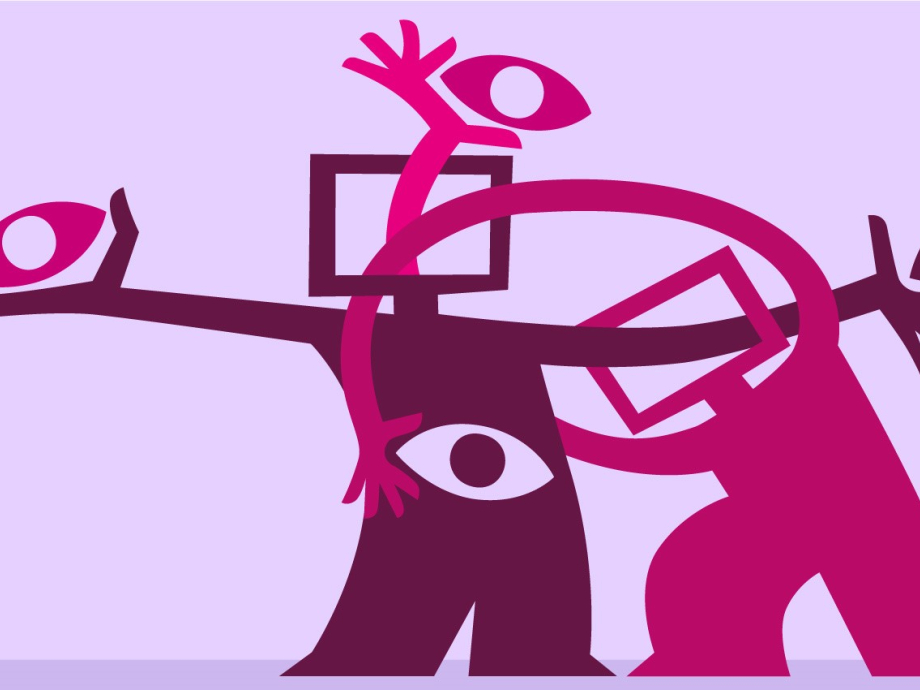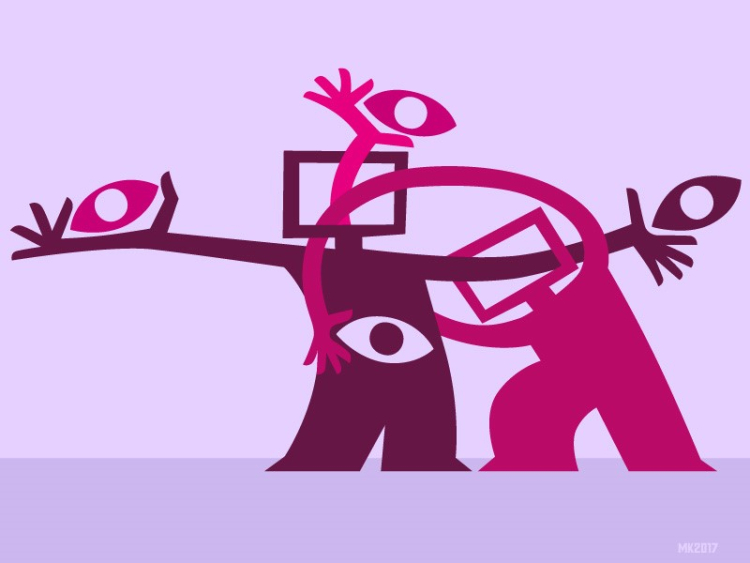Privacy expert Jaap-Henk Hoepman: Use open standards to break up monopolies
It’s not something we think about much nowadays, but e-mail is one of the Wonders of the Modern World. It sets an example for how the rest of the internet ought to be.

By Jaap-Henk Hoepman, Director of the Privacy & Identity Lab at Radboud University
Reading time: 3 minutes
Be sure to read the other articles in the Decent Digitisation series.
E-mail is one of the oldest internet applications still around, and it’s fantastic. The only thing you need is an e-mail program and an e-mail address to which to send your message. E-mail is a very open, egalitarian application, available to everyone. The program you use to send your message is entirely up to you, whether that’s Outlook, Gmail, or an app on your smartphone. The same goes for the recipient. Thanks to e-mail, everyone with an internet connection can communicate with everyone else.
That is precisely what the internet was meant for, and how it once was, at the beginning: open. And it sets an example for how the rest of the internet ought to be: based on open standards, interconnected, and with no one minding the gate and excluding certain users or applications.

That openness bears little resemblance to more recent internet applications such as social networks or messaging services. If I want to send a WhatsApp user a message, I need his or her telephone number and I have to have installed WhatsApp on my own phone. Apple’s iMessage only works between iPhones. And if I have friends and colleagues who use Skype... well, as you might have guessed, I need to have a huge number of apps on my smartphone.
The Big Five killed the internet dream
The same is true of Twitter, Facebook, LinkedIn and Instagram. They are similar networks but they are not connected with one another. And that’s just crazy. It’s as if e-mails sent to Outlook users always had to be composed in Outlook. Or as if someone with a Nokia telephone could only receive text messages from another Nokia owner, and only if both parties had a contract with the same mobile network operator.
The open internet of yore is now dominated by five big companies: Apple, Microsoft, Google, Amazon and Facebook. These ‘Big Five’ killed the original internet dream, each in its own way.
But are the Big Five really monopolies?
They did so because the services that they provide are monopolistic in nature. Or perhaps I should say: because we think that these services are monopolistic?
The idea seems logical at first glance: the more people using Facebook or WhatsApp, the more appealing it is to use Facebook and WhatsApp. After all, all your friends, acquaintances and colleagues already do. Thanks to this network effect, the value of the service rises exponentially with the number of users, making a monopoly seem almost inevitable.
We can survive without Microsoft Word
But the same argument should also apply, say, for word processing programs. If, at a given moment, the vast majority of computer users use a certain word processing program tied to a certain document format, then it becomes almost impossible to work with others if you don’t all use the same software.
And yet, it is possible to survive without Microsoft Word, the dominant word processing program. We can open Word documents in other applications because the document formats are ‘open’. After long resistance, Microsoft has made it possible for us to work with Word users without having to purchase Word ourselves.
A closed format makes that impossible, because:
- it’s hard to figure out everything that a document might contain and how it’s all coded, and
- the software manufacturer can decide to change everything at any given moment.
Get monopolists to use open standards and APIs
We can break up the internet service monopolies by doing something similar: forcing the Big Five to use open standards and an open Application Programming Interface or API. The API for an internet service describes which commands can be sent to that service, how they must be sent, and what result that will produce. In the case of e-mail, for example, the command is ‘send this message to this e-mail address’, the expectation being that this will happen as described.
We can compare an API to filling in and sending off a standard form to a government organisation, for example to request a parking permit or to report a change of address. All of the popular internet services – Facebook, Twitter, etc. – have an API. They allow your browser or the app on your smartphone to make use of their service.
But in many cases that service is not open, because there is no description of how to use the API (the ‘form’ has a secret format) or because a special key is needed to use the API (only authenticated ‘forms’ will be considered). When an API is open, third-party services or smartphone applications can use it too, and thus also make use of the service.
Stop dividing up the internet
If the API for WhatsApp were open, for example, then your iMessage would know how to send a message to a WhatsApp user. iMessage users would then have no trouble sending instant messages to WhatsApp users. In fact, we wouldn’t even need to know which app the recipient is using.
If the API for WhatsApp were open, for example, then your iMessage would know how to send a message to a WhatsApp user
That would be a real blessing. Not only would it stop the division of the internet but it would also vastly improve the user experience of many services because people could continue using their favourite social network app or messaging app without excluding some of their friends.
The indirect praise I’m lavishing on e-mail isn’t entirely justified. E-mail is unbelievably user-unfriendly and an old-fashioned way of communicating. But the basic principles underpinning its design are timeless and invaluable. It’s time to apply the same principles to other internet services.
By Jaap-Henk Hoepman, Director of the Privacy & Identity Lab at Radboud University
Read more
Be sure to read the other articles in the Decent Digitisation series, and the related reports:
- Human Rights in the Robot Age. Challenges arising from the use of robotics, artificial intelligence, and virtual and augmented reality
- A fair share. Safeguarding public interests in the sharing and gig economy
- A never-ending race. On cyberthreats and strengthening resilience
- Urgent upgrade. Protect public values in our digitized society